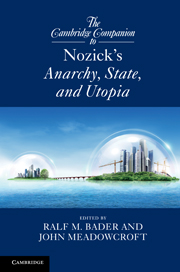2 - Are deontological constraints irrational?
from Part I - Morality
Published online by Cambridge University Press: 28 September 2011
Summary
DOING EVIL THAT GOOD WILL COME OF IT
Most deontologists find bedrock in the Pauline doctrine that it is morally objectionable to do evil in order that good will come of it. Uncontroversially, this doctrine condemns the killing of an innocent person simply in order to maximize the sum total of happiness. It rules out the conscription of a worker to his or her certain death in order to repair a fault that is interfering with the live broadcast of a World Cup match that a billion spectators have been enjoying. It rules out such sacrifice even if it would maximize the sum total of everyone's happiness. An act utilitarian, by contrast, would require the sacrifice of the one whenever this latter condition obtains, since such a utilitarian is committed to the view that one ought always to act so as to bring about the greatest sum total of happiness.
An act utilitarian might, however, consistently hold that a large number of rather insignificant pleasures, such as that which a spectator derives from witnessing men in shorts running around and kicking a ball, is never sufficient to justify the infliction of a great harm on a single individual. 4 He might take such a position without abandoning utilitarianism by denying that the sum total of such minor pleasures could ever be sufficiently great to outweigh the harm of death to the one. Under the inspiration of John Stuart Mill, a utilitarian might draw a more general distinction between serious and trivial harms and pleasures and maintain that no amount of a trivial pleasure could ever amount to a sum of happiness that is greater than the disutility of a serious harm.
- Type
- Chapter
- Information
- Publisher: Cambridge University PressPrint publication year: 2011
- 4
- Cited by



